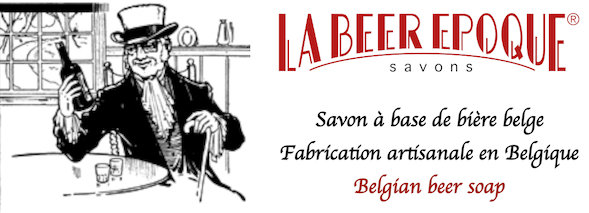Disclaimer and Frequently Asked Questions
11 Sep 2020
For payment – shipment – return related questions, please refer to ‘Payment, shipping & Return‘ and ‘General Conditions of Sale” link.
A: Disclaimer – Natural soap – those made with a saponification process, such as La Beer Epoque® soaps – is classified as a cosmetic product for cleaning your skins, but not a medical product that can heal skin issues. The fact they don’t contain substances that potentially irritate your skin make them special and mild to your skins. We use the best ingredients from renowned suppliers, and formulas are assessed in accordance to Regulation (EC) No 1223/2009 of the European Parliament and of the Council. All precautions of use and possible allergens – naturally occurred or man-made – are declared on the packaging. Please read carefully before use.
INCI (International Nomenclature of Cosmetic Ingredients), abbreviated INCI, is a systemic names for waxes, oils, pigments, chemicals, and other ingredients of soaps, cosmetics, and the like, based on scientific names and other Latin and English words. INCI names often differ greatly from systematic chemical nomenclature or from more common trivial names. (source Wikipedia).
Eg. The INCI name of Olive oil is Olea Europaea Fruit oil and the soap molecule formed after saponification of olive oil is called Sodium Olivate.
- Ingredient INCI – list of ingredients in their INCI name from the final soap product. For example, you will not see olive oil but the soap came out from olive oil after saponification : Sodium Olivate. Included in this list are the allergens that can be found at the end of the list, with or without an annotation of *
- Lot nr : LNNNNNN eg. L220101.
- Date of release to market : the Lot nr is usually followed immediately by the date of release.
- Net weight : net weight of soap at time of packaging/release, there might be a further loss of a few grams with time.
- PAO : validity of product after opening. For a soap, it is usually suggested 18 months.
First, every component of a primary ingredient is given a chemical name, be it natural or not.
For example, through laboratory analysis, natural Lavender essential oil contains the following natural molecules that give its volatility, scent, colour, etc :
LINALOOL | LINALYL ACETATE | CAMPHOR | EUCALYPTOL | 4-TERPINEOL | BORNEOL | ALPHA-TERPINEOL | D-LIMONENE | OCTEN-1-EN-3-YL ACETATE.
These components of the primary ingredient (Lavender essential oil), if remained in the final product, will be named and listed in the ingredient (INCI) list with its INCI name. If you see an unknown chemical name in the list, it does not necessarily means it’s something artificially added or undesirable chemicals, it’s just the chemical name given to a component. By law, the INCI name of components remained in the final product have to be named, not the common trivial names.
A: Soap batters are poured into a slab mould first, then logs and bars are cut from this slab. Sometimes the soap batter becomes thick while being poured, creating an uneven top surface, in addition, every soap bar is cut by hand. That’s why they do not look all the same, and sometimes imperfect – missing a small corner for exemple. But we endeavour to maintain at least 95g/soap (at the time of product release). The dimension might vary slightly.
A: In optimal conditions (ventilated, cool ~25˚C, shaded place) , you can store it forever. But because there’s some extra oil molecules in the soap, we don’t recommend you to forget it in the bottom of your drawer. Try to use it within 3 years after you buy them, and its PAO (period after opening ) is 18 months. If you always keep it dry after use – on a soap dish, its lifespan will extend.
A: Soaps scented with essential oils – volatile – will lose some of its fragrance on the surface with time. As you use them, you’ll smell them.
A: Natural soap do not like to stay in a humid and closed place without airflow. The best is not to forget them at the bottom of your cupboard. Use them as soon as or within a year after you receive them. A forgotten natural soap might smell rancid after an extended storage time as the excess non-saponified oil (superfat) molecules inside the soap might have oxidised naturally. This is when you see some orange spots on the soap. This has no impact on the cleansing power nor on your skin, but you might opt not to use it further.
A:Yes. We have a showroom right next to our lab. Rue de Stalle 260, 1180 Uccle.
Opening hours :
Mon-Sat 1030 – 1800 except wednesdays (closed) and Sat. morning (opens for 1400h).
Visit with (preferred, +0468 07 62 06) or without appointment.
A: Yes. We can work out a formula with your label, or even your home brewed beer. Contact us for a quotation.
A: Yes. We can personalise soaps and bath accessories (fabric items) for your special needs (eg. matching with your bathroom colour), special occasions (party giveaways, baptise, special days (St Valentine, Mother or Father’s day, Halloween, Christmas, etc). Follow our INS account or our web blog (find it in the menu ‘The making of’ for more ideas.
A:Yes. Please refer to our Workshop page.
A:Yes. Contact us for more information. From 20pcs onward.
A. All our beer soaps are conformed to EU regulations for sale to the entire EU. We sell mainly in Belgium and surrounding countries. We shall be extending our delivery to other areas as needed.
